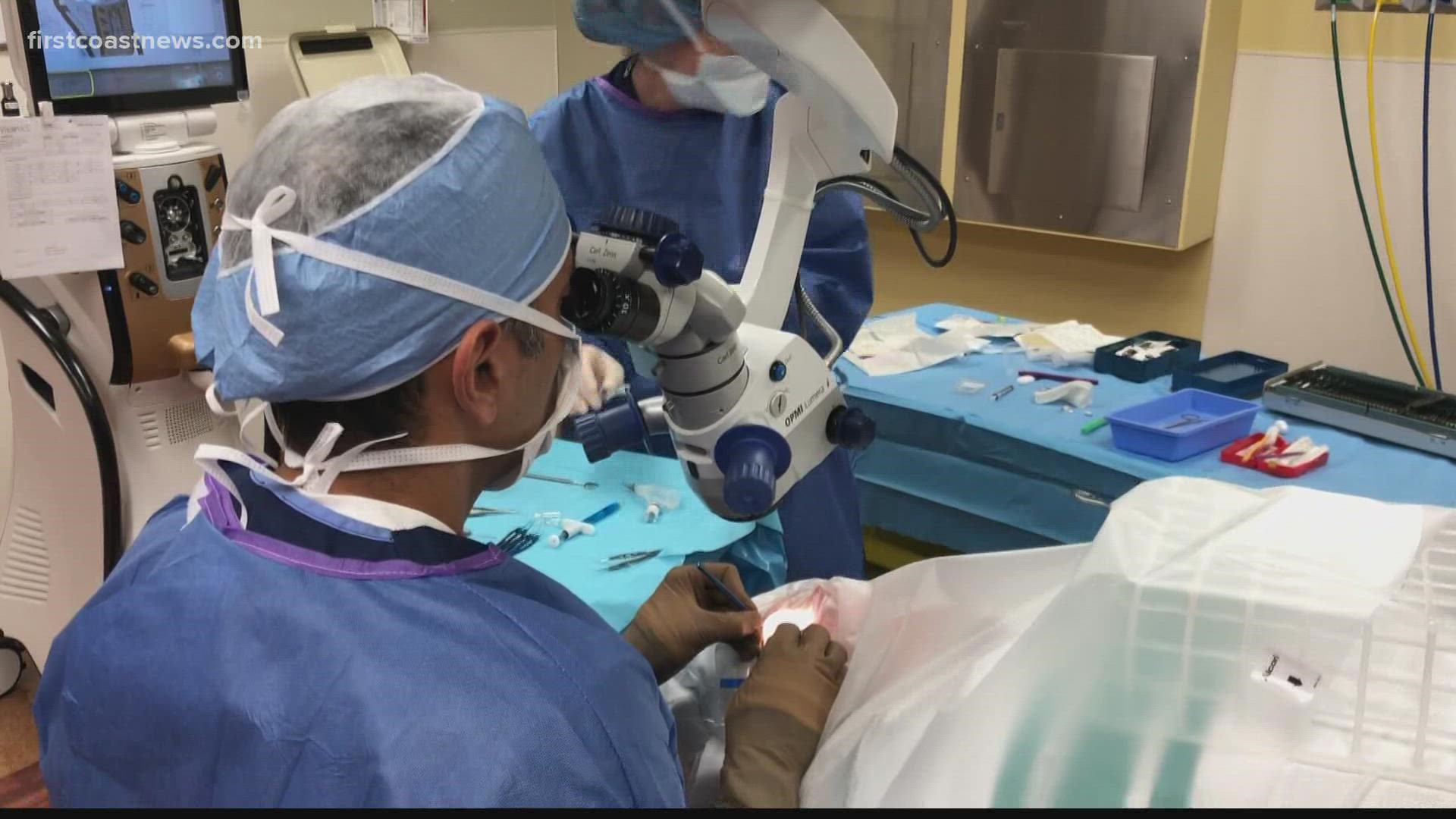JACKSONVILLE, Fla — It’s a slow disease, but once you feel the symptoms, it might be too late to save your vision. That’s the danger of glaucoma.
Marian Rogers was about to go blind in both eyes when a doctor at Florida Eye Specialists in Jacksonville intervened.
“Once it’s gone, you can’t get it back," Rogers said. “It’s a silent takeover.”
Glaucoma took over her life from her 20s to now 54 years old. A week after surgery, she says she has hope.
“I can see your shadow," she describes. "I really can’t distinguish your face.”
That’s improvement. Rogers felt pressure in her eyes since her 20s, but she says it was dismissed. Once a doctor told seek help, it was too late. She lost all sight in her right eye.
That was when she was around 30 years old. Now at 54, she’s fighting to not go blind from glaucoma.
“Kind of think of it as new plumbing for the eye," said Dr. Rajesh Shetty.
Dr. Shetty says you can’t reverse the vision loss, but he’s using a technique with a stent the size of an eyelash to relieve the pressure in Rogers’ eye and preserve what is left of her vision. It’s called the XEN Gel Stent.
“Give me as long as I can to continue to see," Rogers said. "My favorite sight is the sunset (and) sunrise.”
The CDC estimates 50% of people with glaucoma don’t know they have it until it’s irreversible.
“She really needed to have this addressed quickly, and by the time she would be in the hands of a public specialist in a hospital, it would’ve taken months,' Dr. Shetty said. "We needed to do something right now.”
He performed the XEN Gel Stent for free. He says the device has been available for several years, but the way they are using it now was recently approved.
“If any doctor tells you anything about pressure in your eye, please please go get it checked out immediately," Rogers warns.
Rogers says she hopes to continue seeing the sunrise for many more years.
Here’s what you need to know about the risk of getting glaucoma: Dr. Shetty says family history of glaucoma from a direct relative like a parent or sibling means you're 10 times more likely to get glaucoma.
Age is also a factor.
It’s more likely for Latinos and African-Americans to develop the disease.

